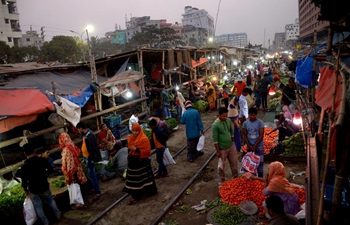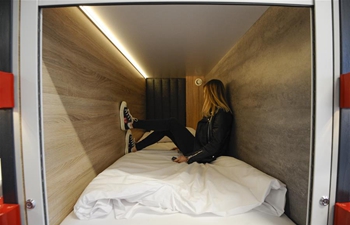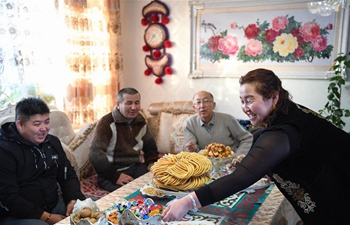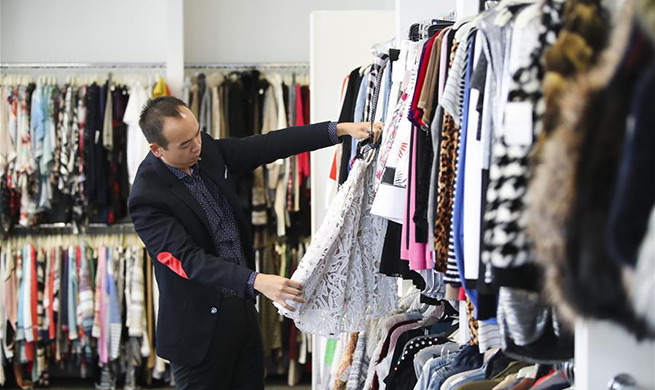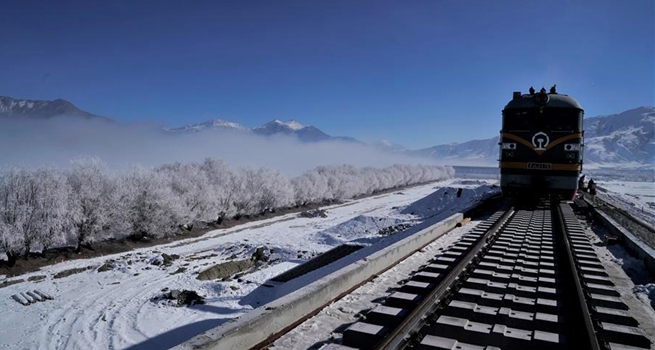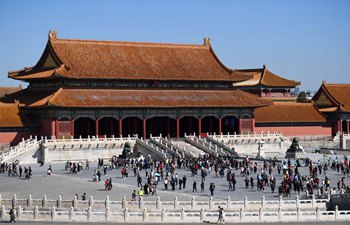by Tao Jun, Dong Hua
HO CHI MINH CITY, Dec. 24 (Xinhua) -- Three generations of Nguyen Minh Tri family, a total of seven people, live in a 23-square meter house on the bank of Doi canal in Vietnam's Ho Chi Minh City, with a far corner of the cramped house acting as a bathroom cum a pit latrine with direct drop.
After knowing that his house is among 5,055 makeshift houses on the southern bank of Doi canal in District 8 being slated for relocation, Tri, a 39-year-old man with grey hair, has been very worried.
"Our house is too small and we have no land ownership documents for it. When it is demolished in the coming time, we will have nowhere to go. We can't afford a house in other places, even in rural areas," Tri told Xinhua recently, pulling a long face.
However, the man, who has three teenager kids, is now seeing the light at the end of the tunnel.
The Ho Chi Minh City Construction Department has proposed the municipal People's Committee build 10,000 social houses earmarked for families affected by relocation from now to 2020. Accordingly, many families like Tri's will benefit from this new social housing project.
In late December, the committee approved a plan on setting aside nine plots of land with a total area of more than 60,000 square meters for social housing. This is the first time Ho Chi Minh City has assigned specific plots of land and mapped out plans to select investors to implement social housing projects.
"With social housing, we can rent an apartment with low rentals. After a period of time, we can buy it on installments. It is any port in a storm," Tri said, pointing to his 74-year-old mother and adding that she has had to live in the makeshift house since 1975.
Like Tri, many other low-income earners in Ho Chi Minh City will benefit from existing and future social housing projects.
Tran Trong Tuan, director of the municipal Construction Department, told local media that the land for social housing construction are located in five urban districts and two rural ones, and are directly managed by the state. The department plans to open tenders for the housing projects.
However, local real estate experts assumed that it is difficult to attract investors to build social apartment blocks on public land because investors of social housing projects are supposed to set aside 20 percent of all apartments for rent, 60 percent of apartments for sales at prices approved by the state, and 20 percent for trading, which left their profits capped at 10 percent.
Meanwhile, low-income earners face difficulties in proving they are eligible for social housing purchases.
"I have to prove that my monthly income is no more than 9 million Vietnamese dong (391 U.S. dollars). Fine, this task is not very difficult. But other criteria pose great headache for me. I have to prove that I am capable of repaying bank loans to buy the house," bemoaned Cao Dat, a resident of District 4.
Now, state agencies intervene in reviewing applications of potential social house buyers.
"Investors of social housing projects should review buyers' applications themselves. The Construction Department will review the list of buyers sent by the investors to make sure that no one is allowed to buy more than one social house," proposed Le Hoang Chau, chairman of the Ho Chi Minh City Real Estate Association.
Chau also pointed out other difficulties facing potential buyers, including limited funds set aside as loans for social house purchases at the Vietnam Bank for Social Policies and harsh conditions for accessing the loans. To access loans, potential buyers have to secure savings accounts at the bank for one year, he noted.
"Demand for social housing is very strong," Vu Van Phan, deputy head of the Housing and Real Estate Market Management Agency under the Vietnamese Ministry of Construction, said at a recent ceremony to hand over 1,000 apartments of a social housing project named Jamona Apartment in Ho Chi Minh City to renters and buyers.
According to statistics from the Construction Ministry, social housing demand in Vietnam in the 2011-2020 period is some 440,000 apartments.
Tran Trong Tuan said Ho Chi Minh City has completed construction of 7,974 social apartments since 2016. Now, 11 social housing projects with a total of 10,191 apartments are underway, and six other projects with a total of 2,216 apartments are about to hold ground-breaking ceremonies.
Some 81,000 families or individuals in the city want to buy social apartments in the 2016-2020 period, including 10,000 civil servant households, 39,000 poor or near-poor households, and 17,000 households whose breadwinners are workers in industrial parks or export processing zones, according to the Ho Chi Minh City Institute for Development Studies.
A local teacher named Bui Thi Sang said she and her husband, also a teacher, have saved money for years to buy a 68-square meter apartment at the Jamona Apartment project at a price of 14 million Vietnamese dong (608 U.S. dollars) per square meter.
"We know the proverb 'Cheapest is dearest', but we can't afford a private house. Moreover, social housing projects also have relevant facilities and services, including schools, shops, tennis courts, gyms, cafes and playgrounds for kids," Sang told Xinhua.
